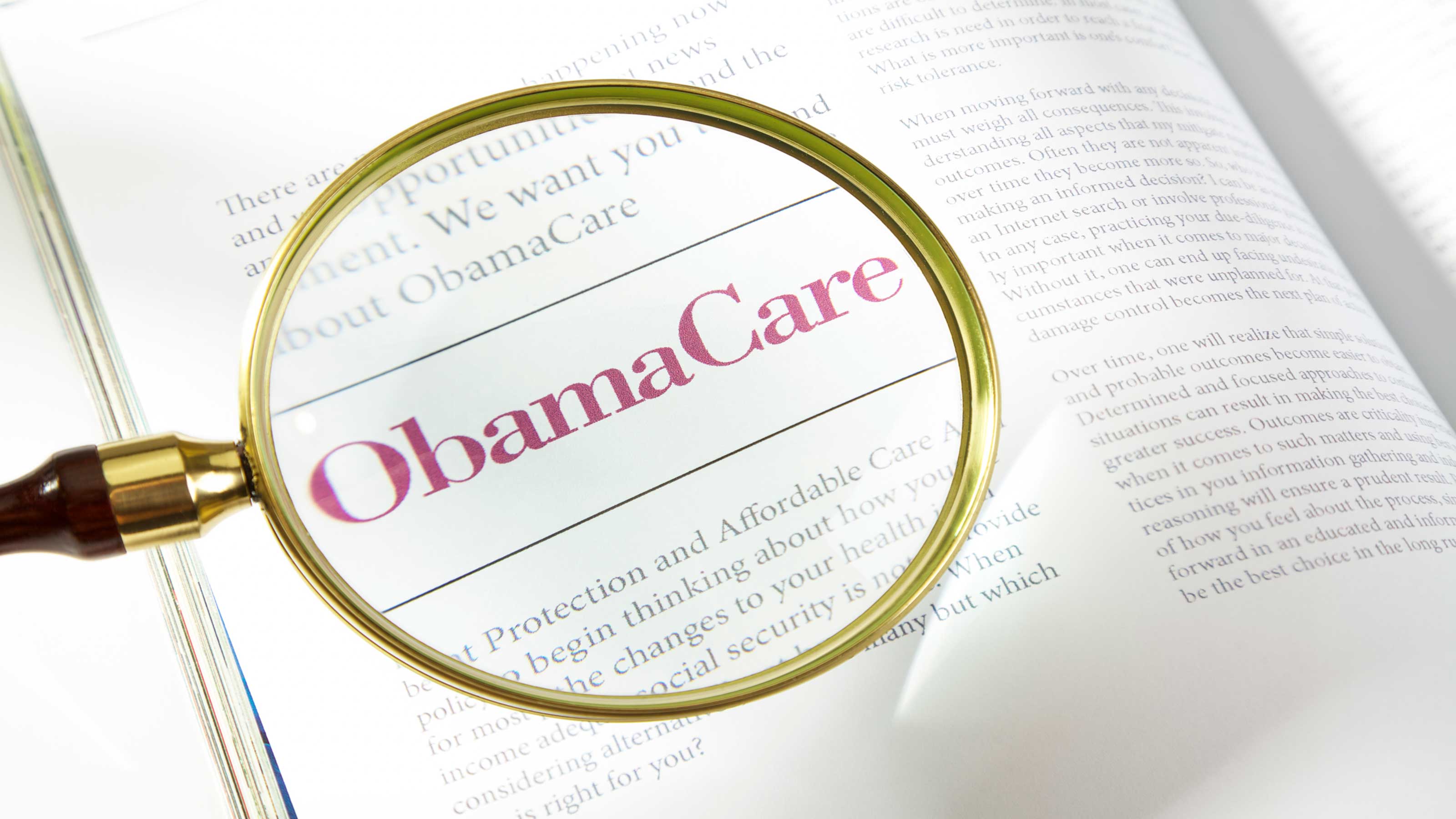Need a Loan or Credit? It May Get Harder for Businesses and Individuals: Kiplinger Economic Forecasts
Banks are tightening criteria amid a reduced risk appetite.


Profit and prosper with the best of Kiplinger's advice on investing, taxes, retirement, personal finance and much more. Delivered daily. Enter your email in the box and click Sign Me Up.
You are now subscribed
Your newsletter sign-up was successful
Want to add more newsletters?

Delivered daily
Kiplinger Today
Profit and prosper with the best of Kiplinger's advice on investing, taxes, retirement, personal finance and much more delivered daily. Smart money moves start here.

Sent five days a week
Kiplinger A Step Ahead
Get practical help to make better financial decisions in your everyday life, from spending to savings on top deals.

Delivered daily
Kiplinger Closing Bell
Get today's biggest financial and investing headlines delivered to your inbox every day the U.S. stock market is open.

Sent twice a week
Kiplinger Adviser Intel
Financial pros across the country share best practices and fresh tactics to preserve and grow your wealth.

Delivered weekly
Kiplinger Tax Tips
Trim your federal and state tax bills with practical tax-planning and tax-cutting strategies.

Sent twice a week
Kiplinger Retirement Tips
Your twice-a-week guide to planning and enjoying a financially secure and richly rewarding retirement

Sent bimonthly.
Kiplinger Adviser Angle
Insights for advisers, wealth managers and other financial professionals.

Sent twice a week
Kiplinger Investing Weekly
Your twice-a-week roundup of promising stocks, funds, companies and industries you should consider, ones you should avoid, and why.

Sent weekly for six weeks
Kiplinger Invest for Retirement
Your step-by-step six-part series on how to invest for retirement, from devising a successful strategy to exactly which investments to choose.
Our highly experienced Kiplinger Letter team produces regular forecasts on the banking and finance sectors to help you make better investments and other financial decisions (Get a free issue of The Kiplinger Letter or subscribe). You will get them first by subscribing, but we will publish many (but not all) of the forecasts a few days afterward online. Here’s the latest forecast…
Banks are tightening standards for commercial and industrial loans. According to one survey, nearly 46% of banks pulled back lending to large and medium businesses, while nearly 47% did so for small firms.
A slowing economy and a reduced appetite for risk are two factors. Lenders also have tougher terms for commercial real estate loans, which are now approaching the record highs reached in 2008 and 2020.
From just $107.88 $24.99 for Kiplinger Personal Finance
Become a smarter, better informed investor. Subscribe from just $107.88 $24.99, plus get up to 4 Special Issues

Sign up for Kiplinger’s Free Newsletters
Profit and prosper with the best of expert advice on investing, taxes, retirement, personal finance and more - straight to your e-mail.
Profit and prosper with the best of expert advice - straight to your e-mail.
As for consumer credit, standards have tightened across the board, except for government-sponsored enterprises and government residential mortgages. Expect this trend to continue.
Midsize banks, in particular, are poised to close the credit spigot because of concerns over the deterioration of credit quality among borrowers, higher funding costs and a recent outflow of deposits.
Meanwhile, stablecoins are under the microscope
Congress is working on new legislation for stablecoins, which are crypto assets whose value is pegged to a more stable asset, such as the U.S. dollar.
Likely provisions include requiring financial institutions and nonbanks issuing stablecoins to register with the Federal Reserve and creating insurance requirements and other standards for issuers. But Republicans and Democrats still disagree on a lot of specifics.
Recent incidents involving stablecoins highlight the case for regulation. The implosion of the popular stablecoin TerraUSD last year kicked off a domino effect that helped fuel the collapse of several crypto firms, including Alameda Research and FTX.
Stablecoins are mostly unregulated, and customers have no guarantee that the company issuing the digital coin has the appropriate reserves. The industry is mostly on board, eager for a dose of regulatory clarity.
This forecast first appeared in The Kiplinger Letter. Since 1923, the Letter has helped millions of business executives and investors profit by providing reliable forecasts on business and the economy, as well as what to expect from Washington. Get a free issue of The Kiplinger Letter or subscribe.
Profit and prosper with the best of Kiplinger's advice on investing, taxes, retirement, personal finance and much more. Delivered daily. Enter your email in the box and click Sign Me Up.

Rodrigo Sermeño covers the financial services, housing, small business, and cryptocurrency industries for The Kiplinger Letter. Before joining Kiplinger in 2014, he worked for several think tanks and non-profit organizations in Washington, D.C., including the New America Foundation, the Streit Council, and the Arca Foundation. Rodrigo graduated from George Mason University with a bachelor's degree in international affairs. He also holds a master's in public policy from George Mason University's Schar School of Policy and Government.
-
 Nasdaq Leads a Rocky Risk-On Rally: Stock Market Today
Nasdaq Leads a Rocky Risk-On Rally: Stock Market TodayAnother worrying bout of late-session weakness couldn't take down the main equity indexes on Wednesday.
-
 Quiz: Do You Know How to Avoid the "Medigap Trap?"
Quiz: Do You Know How to Avoid the "Medigap Trap?"Quiz Test your basic knowledge of the "Medigap Trap" in our quick quiz.
-
 5 Top Tax-Efficient Mutual Funds for Smarter Investing
5 Top Tax-Efficient Mutual Funds for Smarter InvestingMutual funds are many things, but "tax-friendly" usually isn't one of them. These are the exceptions.
-
 Big Change Coming to the Federal Reserve
Big Change Coming to the Federal ReserveThe Lette A new chairman of the Federal Reserve has been named. What will this mean for the economy?
-
 AI Appliances Aren’t Exciting Buyers…Yet
AI Appliances Aren’t Exciting Buyers…YetThe Kiplinger Letter Artificial intelligence is being embedded into all sorts of appliances. Now sellers need to get customers to care about AI-powered laundry.
-
 Banks Are Sounding the Alarm About Stablecoins
Banks Are Sounding the Alarm About StablecoinsThe Kiplinger Letter The banking industry says stablecoins could have a negative impact on lending.
-
 Big Changes Are Ahead for Higher Ed
Big Changes Are Ahead for Higher EdThe Kiplinger Letter A major reform of higher ed is underway. Colleges are bracing for abrupt change, financial headwinds and uncertainty.
-
 What New Tariffs Mean for Car Shoppers
What New Tariffs Mean for Car ShoppersThe Kiplinger Letter Car deals are growing scarcer. Meanwhile, tax credits for EVs are on the way out, but tax breaks for car loans are coming.
-
 AI’s Rapid Rise Sparks New Cyber Threats
AI’s Rapid Rise Sparks New Cyber ThreatsThe Kiplinger Letter Cybersecurity professionals are racing to ward off AI threats while also using AI tools to shore up defenses.
-
 Blue Collar Workers Add AI to Their Toolboxes
Blue Collar Workers Add AI to Their ToolboxesThe Kiplinger Letter AI can’t fix a leak or install lighting, but more and more tradespeople are adopting artificial intelligence for back-office work and other tasks.
-
 Tax Rule Change Could See Millions Lose Health Insurance
Tax Rule Change Could See Millions Lose Health InsuranceThe Kiplinger Tax Letter If current rules for the health premium tax credit (PTC), a popular Obamacare subsidy, aren't extended, 3.7 million people could lose their health insurance.